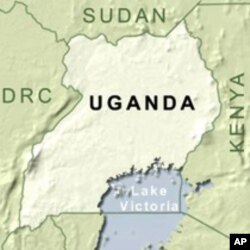The chairman of Uganda’s Electoral Commission, professor Badru Kigundu, said he’s confident next year’s general elections would yield better results than the controversial 2006 presidential elections.
His comments came as the deadline for Uganda’s extended voter registration came to a close June 18 .
Kigundu said the extension was necessary because of the large number of voters who had not been registered.
“First of all, we projected to register 3.5 million voters and by the planned closure, that number had been achieved. However, a few days to the closure we witnessed long lines of prospective voters which, if it had closed, would have been disenfranchised. So as a commission we took a decision to extend the process to another four days, and the four days end on Friday, the 18th,” he said.
The Inter-Party Cooperation, a loose group of four major political parties had criticized the commission, saying the problems in the voter registration were an indication the Electoral Commission had failed to do its job well.
But Kigundu said perhaps an unexplainable voter interest in next year’s elections might have been responsible for the surge in voter registration.
“Election is not counting money. In our country it is not mandatory to register, and as I have told you, in the past we’ve made projections, but this is the first time that the projections we made have yielded 100 percent. Of course that shows that statistics are just approximation. The reality is a little higher than the projection,” Kigundu said.
He denied opposition claims the commission failed to work with all political parties.
“The opposition is a stakeholder just like the voters themselves, and we sensitized everyone who cares from the very beginning. So there was no special campaign just for opposition alone,” Kigundu said.
The Ugandan Supreme Court, acting on the petition of opposition leader Kizza Besgye criticized the commission for its conduct of the 2006 elections.
President Yoweri Museveni reappointed Kigundu as chairman of the electoral commission.
The Inter-Party Cooperation, a loose group of four major political parties has expressed doubt that the electoral commission, under Kigundu, can conduct a free and fair election.
Kigundu said his reappointment was done within the laws of Uganda.
“First of all, our reappointment was done within the constitution, and once it was accomplished within the law, who am I to turn around and say I need a special gratis from any section of society. Our approval went through their norms. The names were selected and submitted to parliament, parliament passed them, and we are here in the provisions of the law,” Kigundu said.
He reiterated his commission would do a better job in conducting of the 2011 election.
“Remember, election is not just a one entity undertaking; it is a mass stakeholders undertaking. So I’m confident that that we shall better results than we had in 2006,” Kigundu said.











